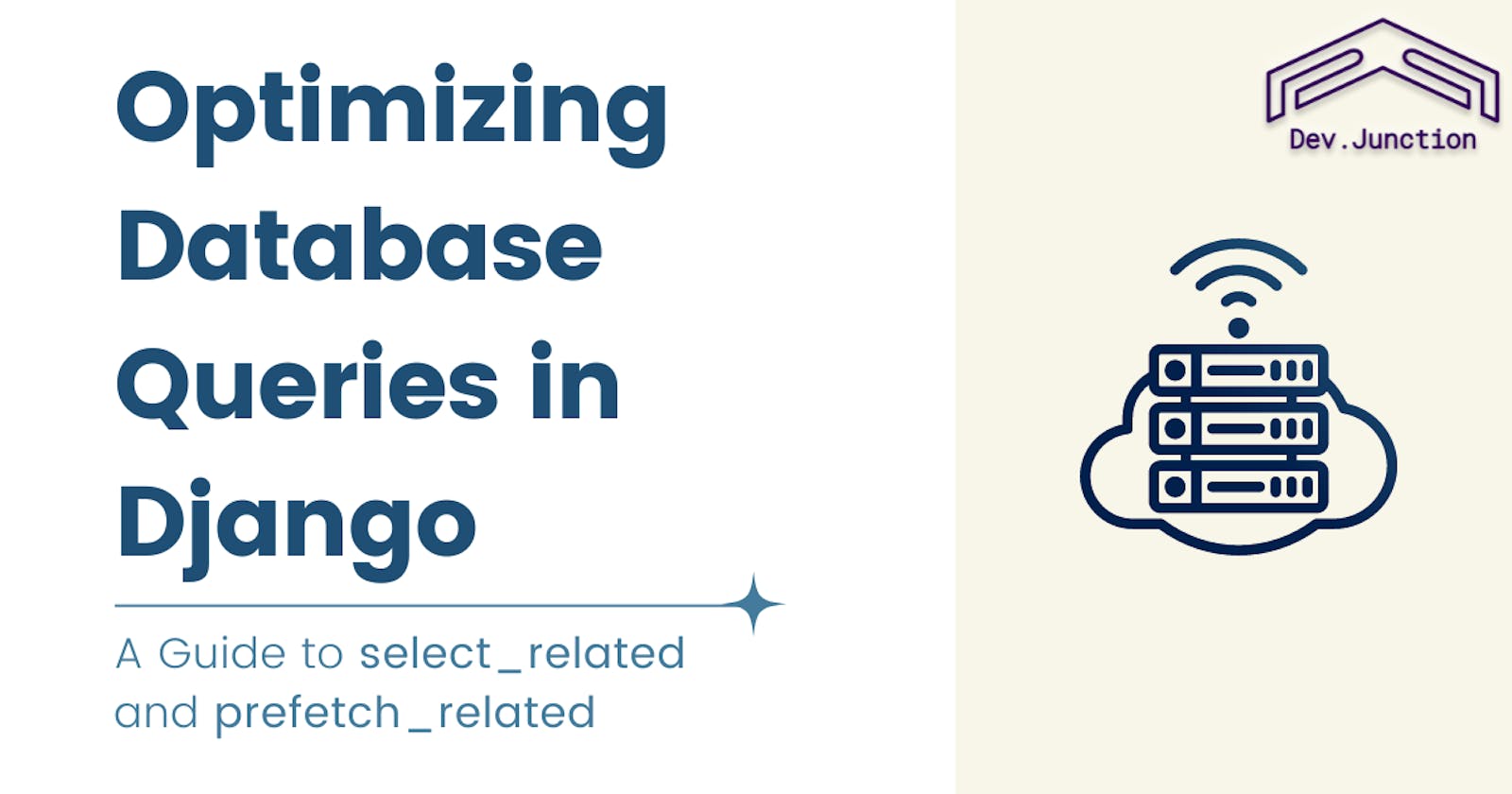Optimizing Database Queries in Django: A Guide to select_related and prefetch_related
Maximizing Performance with select_related and prefetch_related in Django
In Django, select_related and prefetch_related are two functions that can be used to optimize database queries. They are particularly useful when working with foreign keys and many-to-many relationships, as they allow you to retrieve related objects in a single query, rather than making separate queries for each object.
The select_related:
select_related is used to retrieve related objects in a single SELECT statement. It works by following foreign keys and many-to-many relationships and including the related objects in the initial query.
For example:
from django.db import models
class Author(models.Model):
name = models.CharField(max_length=50)
class Book(models.Model):
title = models.CharField(max_length=50)
author = models.ForeignKey(Author, on_delete=models.CASCADE)
# Without select_related
authors = Author.objects.all()
for author in authors:
books = author.book_set.all()
# With select_related
authors = Author.objects.all().select_related('book')
for author in authors:
books = author.book_set.all()
In the example above, without select_related, a separate database query would be made for each author object to retrieve the related book objects. With select_related, all the related objects are included in the initial query, improving the performance of the code.
The prefetch_related:
prefetch_related is similar to select_related, but it is used to prefetch related objects for a Queryset in a single query, rather than retrieving them when the object is accessed.
For example:
# Without prefetch_related
authors = Author.objects.all()
for author in authors:
books = author.book_set.all()
# With prefetch_related
authors = Author.objects.all().prefetch_related('book')
for author in authors:
books = author.book_set.all()
In the example above, without prefetch_related, a separate query would be made for each author object to retrieve the related book objects. With prefetch_related, the related objects are prefetched in a single query, improving the performance of the code.
Conclusion:
So the conclusion is that select_related and prefetch_related can be used together to optimize database queries and improve the performance of your Django application.
Any thoughts? Write it down in the comments.
For more such crispy blogs daily, follow Dev.Junction, subscribe to our newsletter and get notified daily.

